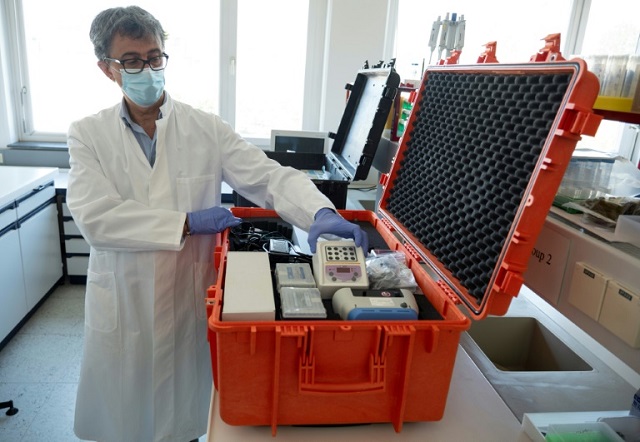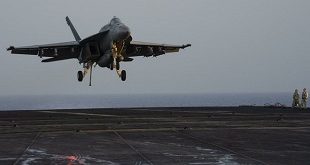
Seibersdorf, Austria | AFP | Shortages of materials needed in tests for the novel coronavirus remain “critical”, according to the head of a UN lab, which is supplying countries with COVID-19 detection kits.
In particular the chemical reagents for the tests are still in short supply, said Giovanni Cattoli, head of the Animal Production and Health Laboratory run jointly by the UN Food and Agriculture Organization (FAO) and the International Atomic Energy Agency (IAEA).
“There is indeed on the global market a shortage of some items, particularly reagents, because there are demands from all over the world,” Cattoli told AFP this week during a tour of the laboratory at Seibersdorf, 40 kilometres (25 miles) outside Vienna.
“The situation is still critical,” he said. “We are working… to accelerate purchase and investigate if there are alternative reagents.”
The tests the lab sends out use the nuclear-derived RT-PCR technology, which is now common for new coronavirus detection and can give results within hours.
Cattoli said one of the lessons of the crisis was “that we need not to rely only on a single type of test but to have a portfolio of tests and a portfolio of reagents in order to be prepared to have a plan B and possibly a plan C in order to respond effectively and rapidly.”
The IAEA has received requests from 119 member states for test equipment to supply more than 200 laboratories, Cattoli added.
Of them, 18 have already received supplies with more on the way.
The costs of each package of equipment — some 100,000 euros ($108,000) — are borne by the IAEA.
“Some laboratories in some areas of the world don’t have the necessary equipment. They don’t have the necessary reagents and procedures to rapidly detect the virus,” Cattoli said.
Those who have received equipment are Bosnia and Herzegovina, Burkina Faso, Iran, Kenya, Latvia, Lebanon, Lesotho, Malaysia, Montenegro, Morocco, Nigeria, North Macedonia, Peru, Philippines, Senegal, Sri Lanka, Thailand and Togo.
The IAEA Laboratories in Seibersdorf are the only ones of their kind operated by the UN in the world.
They cooperate with the FAO and others to monitor the evolution of the novel coronavirus and other viruses.
They also work on improvements to RT-PCR technology, which may enable it to be used outside laboratories in the future, Cattoli said.
 The Independent Uganda: You get the Truth we Pay the Price
The Independent Uganda: You get the Truth we Pay the Price


